Home>Garden Essentials>How To Stop Squirrels From Eating Bird Seed
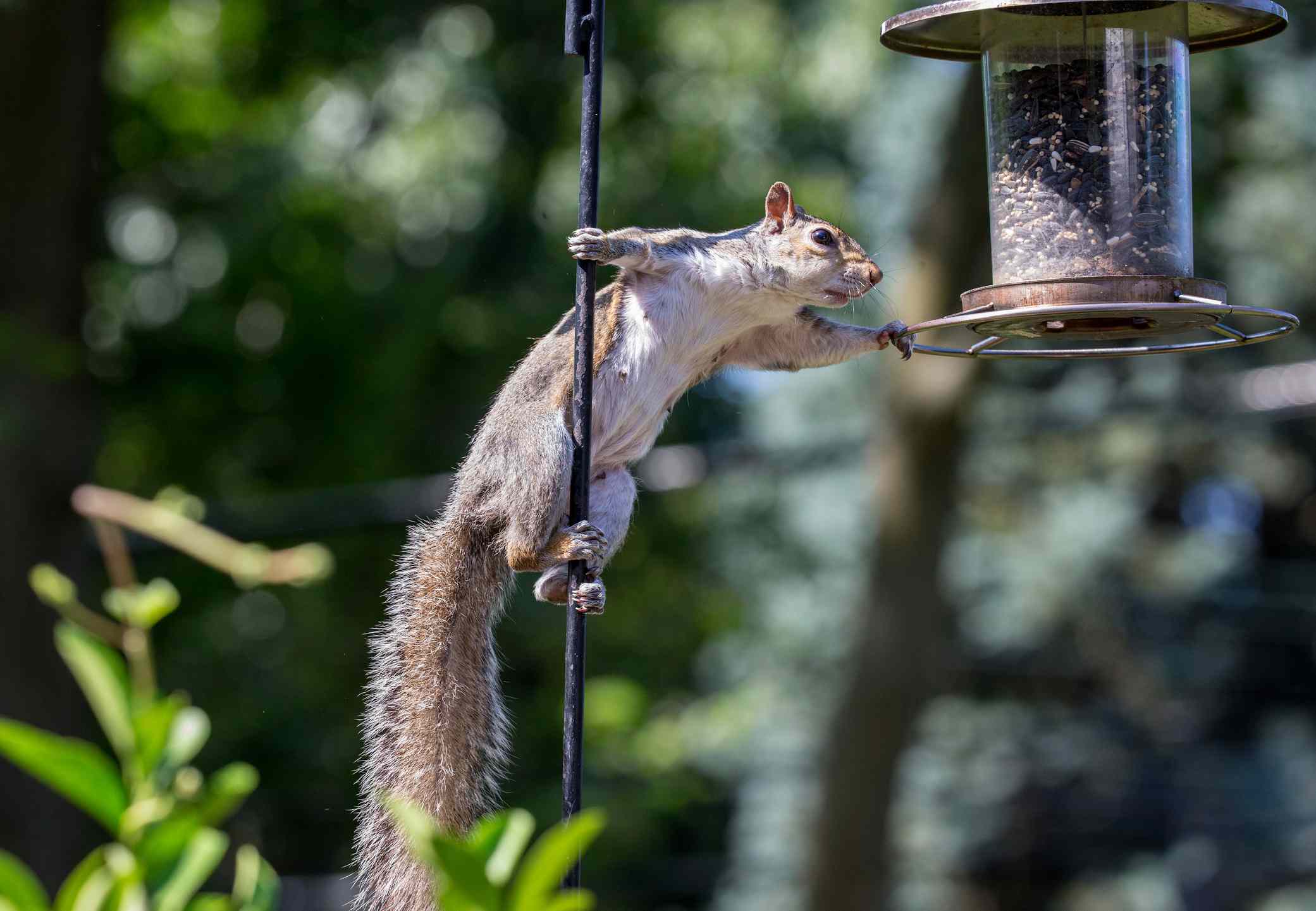

Garden Essentials
How To Stop Squirrels From Eating Bird Seed
Modified: March 15, 2024
Learn how to keep squirrels out of your garden and protect your bird seed from being eaten by implementing these effective and natural methods.
(Many of the links in this article redirect to a specific reviewed product. Your purchase of these products through affiliate links helps to generate commission for Storables.com, at no extra cost. Learn more)
Introduction
Attracting birds to your garden with a bird feeder can bring joy and beauty to your outdoor space. However, one common problem that many gardeners face is squirrels raiding the bird seed meant for our feathered friends. These agile little creatures can quickly empty the bird feeder, leaving nothing for the birds to enjoy.
While squirrels are undoubtedly entertaining to watch, their voracious appetites and acrobatic skills can be frustrating for bird enthusiasts. Fortunately, there are several effective methods you can employ to prevent squirrels from eating bird seed and reclaim your feeder for the intended avian visitors.
In this article, we will explore various techniques and strategies to stop squirrels from raiding your bird feeders. From natural deterrents to physical barriers, homemade solutions to commercial products, and even behavioral modification methods, we will cover a range of options to suit different preferences and budgets. So, let’s dive in and discover how to keep those pesky squirrels at bay!
Key Takeaways:
- Keep squirrels away from bird feeders by using natural deterrents like planting squirrel-repelling plants and using scents. Consider providing alternative food sources for squirrels to redirect their attention.
- Install squirrel-proof feeders, baffle systems, and physical barriers to prevent squirrels from accessing bird seed. Use homemade solutions like PVC pipe baffles and spicy seed mixes. If needed, explore commercial products designed to deter squirrels effectively.
Understanding the Problem: Why Squirrels are Attracted to Bird Seed
Before we delve into the solutions, it’s important to understand why squirrels are so attracted to bird seed in the first place. Squirrels are opportunistic foragers and have a keen sense of smell. They are quick to recognize the abundance of food sources, including bird feeders, in residential areas.
Squirrels are particularly drawn to bird seed because it provides a rich and easily accessible source of nutrition. Bird seed typically contains a variety of seeds, nuts, and grains that are high in protein and fat – both essential for the squirrels’ survival. This makes your bird feeders a prime target for their dining pleasure.
Furthermore, squirrels are not deterred by the presence of bird feeders themselves. In fact, they see them as a challenge and an opportunity for a feast. Their nimble bodies allow them to navigate through various obstacles and access the bird feeders, even if they are designed to keep larger animals out.
Additionally, squirrels are smart and adaptive creatures. Once they discover a consistent and easily accessible food source, they will keep coming back for more. This persistence can quickly frustrate bird enthusiasts who find their seed disappearing at an alarming rate.
Now that we understand why squirrels are attracted to bird seed, it’s time to explore practical solutions to prevent them from invading and depleting our feeders. By employing a combination of natural deterrents, physical barriers, homemade solutions, and commercial products, we can reclaim our bird feeders and ensure that our feathered friends get the sustenance they need.
Assessing the Damage: Identifying Signs of Squirrel Activity in Your Bird Feeder
Before implementing any squirrel deterrent methods, it’s important to assess the extent of squirrel activity in your bird feeder. By identifying the signs of squirrel presence, you can better understand the unique challenges you face and tailor your approach accordingly.
One of the most obvious signs of squirrel activity is the depletion of bird seed at a rapid pace. If you consistently find your bird feeder empty or nearly empty, despite refilling it regularly, chances are squirrels are the culprits. They have a knack for quickly devouring the seed and leaving little for the birds.
Another telltale sign is the presence of squirrel droppings around the bird feeder. Squirrel droppings are usually tubular in shape and resemble small raisins. If you notice these droppings in the vicinity of your feeder, it’s a clear indication that squirrels have been frequenting the area.
Squirrel-induced damage to the bird feeder itself is another sign to look out for. Squirrels have sharp teeth that can gnaw through plastic or wooden feeders in their quest for food. Keep an eye out for chewed or damaged parts of the feeder, which may require repair or replacement.
Furthermore, you may notice physical evidence of squirrels’ acrobatics in accessing the bird feeder. They are skilled climbers and jumpers, so you might find evidence of squirrel footprints on nearby surfaces or branches. Look for paw-shaped prints or scuff marks that indicate their presence.
Lastly, if you have motion-activated cameras or have observed squirrels in action, you may have firsthand visual evidence of their antics. Squirrels can be highly entertaining to watch as they attempt to outsmart your deterrents and feast on the bird seed. However, it’s important to remember that our goal is to minimize their impact on the bird feeder.
By assessing the damage and identifying the signs of squirrel activity, you can better understand the urgency and severity of the problem. This information will guide you in selecting the most effective squirrel deterrent methods for your specific situation. So, let’s explore the various strategies to keep those pesky squirrels away from your bird seed!
Natural Deterrents: Using Plants and Scents to Keep Squirrels Away
If you prefer a more eco-friendly approach to squirrel-proofing your bird feeders, consider utilizing natural deterrents that make the surrounding environment less appealing to squirrels. By harnessing the power of plants and scents, you can create an inhospitable atmosphere for these furry intruders. Here are some effective natural deterrent methods:
1. Planting Squirrel-Repelling Plants
Certain plants have properties that repel squirrels due to their strong scents or prickly textures. Planting these types of flora near your bird feeder can help create a barrier that deters squirrels from approaching. Some effective squirrel-repelling plants include:
- Marigolds: Their strong scent is offensive to squirrels and keeps them at bay.
- Daffodils: Squirrels dislike the alkaloid compounds found in daffodils, making them a great choice for deterring these critters.
- Alliums: Plants in the allium family, such as onions, garlic, and chives, emit a scent that squirrels find unpleasant.
- Mint: Squirrels are repelled by the strong aroma of mint, so consider planting it strategically around your bird feeder.
Read more: How To Prevent Birds From Eating Grass Seed
2. Using Scent Repellents
Squirrels have a sensitive sense of smell, and certain scents can act as deterrents. Consider using natural scents to repel squirrels from your bird feeders. Some effective scent repellents include:
- Peppermint: Squirrels dislike the strong scent of peppermint oil. Place cotton balls soaked in peppermint oil near your bird feeder.
- Hot pepper flakes: Sprinkle a generous amount of hot pepper flakes on the ground around your bird feeder. The strong smell will deter squirrels from approaching.
- Cayenne pepper spray: Mix cayenne pepper powder with water and spray it on the bird feeder and surrounding areas. Squirrels find the spicy scent unpleasant.
3. Feeding the Squirrels Elsewhere
While the primary goal is to keep squirrels away from your bird feeders, offering them an alternative food source can help redirect their attention. Set up a separate squirrel feeder away from your bird feeder and fill it with seeds, nuts, or fruits. By providing them with their own designated feeding area, you can reduce their desire to raid the bird feeder.
Remember, each garden and squirrel situation is unique, so experiment with different natural deterrents to find the methods that work best for you. Combining multiple approaches can increase their effectiveness. In the next section, we will explore how physical barriers, homemade solutions, and commercial products can further aid in squirrel-proofing your bird feeders.
Physical Barriers: Installing Squirrel-Proof Feeders or Accessories
If natural deterrents alone don’t provide the desired results, it’s time to consider implementing physical barriers to prevent squirrels from accessing your bird feeders. Here are some effective methods:
1. Squirrel-Proof Feeders
Investing in a squirrel-proof bird feeder is one of the most efficient solutions to keep squirrels at bay. These feeders are designed with mechanisms that make it difficult for squirrels to access the bird seed. Some common features of squirrel-proof feeders include:
- Weight-activated mechanisms: These feeders have perches that collapse under the weight of a squirrel, preventing them from reaching the seed.
- Baffle systems: Squirrel baffles are dome-shaped or cylindrical devices that can be installed above or below the feeder. They create a physical barrier that squirrels struggle to navigate.
- Cage feeders: These feeders have wire mesh cages surrounding them, allowing smaller birds to access the seed while keeping squirrels out.
Read more: Which Birds Eat Sunflower Seeds
2. Baffle Accessories
In addition to squirrel-proof feeders, you can also utilize squirrel baffles as standalone accessories. These devices can be installed on existing feeders or on poles supporting the feeders. The curved or cone-shaped baffles make it challenging for squirrels to climb up and access the bird seed.
3. Adjusting Feeder Placement
Squirrels are agile jumpers and climbers, so it’s crucial to think strategically when placing your bird feeder. Hang the feeder at least 6-8 feet away from any jumping-off points, such as trees, fences, or buildings. Position it away from overhanging branches or structures that squirrels can use as launching pads.
Consider using a long metal pole to mount the feeder, as squirrels find it difficult to climb metal surfaces. You can also apply a slick surface to the pole, such as PVC pipe or lubricant, which makes it extra challenging for squirrels to climb up.
Remember to keep the feeder at a safe distance from structures to prevent squirrels from launching themselves onto it from nearby surfaces.
By employing physical barriers like squirrel-proof feeders, baffle accessories, and strategic feeder placement, you can significantly reduce squirrel activity around your bird feeders. However, if the squirrels still manage to outsmart these deterrents, there are homemade solutions and commercial products available to further enhance squirrel-proofing. We’ll explore these options in the next section.
Homemade Solutions: DIY Methods to Repel Squirrels from Bird Seed
If you prefer to take a do-it-yourself approach to squirrel-proofing your bird feeders, there are several effective homemade solutions you can try. These methods utilize common household items to create barriers and deterrents that discourage squirrels from accessing the bird seed. Here are some DIY methods to repel squirrels:
1. PVC Pipe Baffle
A PVC pipe baffle is a simple and cost-effective way to keep squirrels away from your bird feeder. Cut a length of PVC pipe to be wider than the diameter of the feeder pole. Then, slit the pipe lengthwise and slide it over the pole. The smooth surface of the pipe makes it difficult for squirrels to climb up and access the bird seed.
2. Spicy Seed Mix
Squirrels dislike the taste of spicy foods, so creating a spicy seed mix can deter them from feasting on your bird seed. Mix birdseed with cayenne pepper or chili powder and place it in your feeder. Birds are not affected by the spice, but squirrels will be deterred by the taste.
3. Slinky Baffle
A Slinky baffle serves as a physical barrier that prevents squirrels from climbing up the bird feeder pole. Attach a Slinky toy around the pole, and as squirrels attempt to climb, the Slinky will stretch and slide them back down.
4. Soap Shavings
Squirrels dislike the smell of soap, so scattering soap shavings around your bird feeder can help keep them at bay. Use a vegetable-based soap and spread the shavings on the ground or nearby surfaces.
5. Predator Decoys
Installing predator decoys near your bird feeder can scare away squirrels. Place a plastic owl or hawk silhouette nearby to create the illusion of a potential threat. However, remember to occasionally move the decoy to prevent squirrels from getting used to its presence.
These homemade solutions can be effective in deterring squirrels from raiding your bird feeders. However, it’s important to note that their effectiveness may vary based on your specific squirrel population and their persistence in accessing the feeders. If homemade methods don’t provide the desired results, commercial squirrel-proofing options are available, as we’ll explore in the next section.
Read more: What Birds Eat Seeds
Commercial Products: Exploring Squirrel-Proofing Options Available in the Market
If natural deterrents and homemade solutions don’t effectively deter squirrels from your bird feeders, there are several commercial products specifically designed to keep squirrels at bay. These products have been tested and refined to provide effective squirrel-proofing solutions. Here are some popular commercial options to consider:
1. Squirrel-Proof Feeders
Commercially available squirrel-proof feeders come in various designs and mechanisms to prevent squirrels from accessing the bird seed. These feeders are built with features such as weight-activated perches, spring-loaded doors, or adjustable cages that allow only smaller birds to access the seed.
2. Baffle Systems
Squirrel baffles designed for bird feeders are readily available in the market. These baffles can be installed above or below the feeder to create a physical barrier that squirrels find difficult to navigate. Baffles come in different shapes and sizes, including domes, tubes, and cones, providing effective protection against squirrel intrusion.
3. Squirrel-Proof Cages
Squirrel-proof cages are wire-mesh structures that enclose the bird feeder, allowing smaller birds to access the seed while preventing squirrels from getting in. These cages are designed with tight spacing that squirrels can’t squeeze through, ensuring that only birds can reach the feed.
Read more: What Birds Eat Nyjer Seed
4. Electronic Deterrents
Electronic squirrel deterrents use motion sensors and sound or spray mechanisms to startle squirrels when they approach the bird feeder. Some devices emit high-frequency sounds that are unpleasant to squirrels but inaudible to humans, while others release bursts of water to deter the critters.
5. Grease or Slippery Pole Coatings
Specialized greases or slippery pole coatings are available that make it nearly impossible for squirrels to climb up the bird feeder poles. These products create a slick surface that squirrels can’t grip, preventing them from reaching the bird seed.
When considering commercial products, research the options available and read reviews from other bird enthusiasts to determine which ones have proven to be effective. Keep in mind that different products may work better for specific situations or types of squirrels. It may be worthwhile to try a combination of methods or products to find the best solution for your particular squirrel problem.
By exploring and utilizing these commercial squirrel-proofing options, you can safeguard your bird feeders from squirrel invasion and ensure that the feathered visitors can enjoy their meals undisturbed. However, it’s essential to keep in mind that squirrels are intelligent and adaptable creatures, so periodic monitoring and adjustment of your chosen squirrel-proofing methods may be necessary.
Behavioral Modification: Training Squirrels to Stay Away from Bird Feeders
While it may seem challenging, it is possible to modify squirrel behavior and train them to stay away from bird feeders. By employing behavioral modification techniques, you can deter squirrels from raiding your feeders and encourage them to seek food elsewhere. Here are some methods to consider:
1. Providing Alternative Food Sources
One effective approach is to offer squirrels their own designated feeding area and provide them with alternative food sources. Set up squirrel feeders in a different area of your garden and fill them with nuts, seeds, or fruits. By diverting their attention and satisfying their hunger elsewhere, you can minimize their interest in raiding the bird feeder.
Read more: Which Birds Eat Safflower Seeds
2. Applying Deterrents to Bird Seed
Consider using natural deterrents on the bird seed that make it unpalatable for squirrels. For example, mixing bitter substances like vinegar or non-toxic bitter apple spray with the bird seed can discourage squirrels from eating it. This approach conditions squirrels to associate the bird seed with an unpleasant taste.
3. Startling Techniques
Utilize sudden loud noises or motion-activated devices near the bird feeder to startle squirrels whenever they attempt to access it. This can be achieved through the use of wind chimes, motion-activated sprinkler systems, or even strategically placed objects that create noise when disturbed. By associating the bird feeder with unexpected disturbances, squirrels are less likely to persist in their attempts to reach the seed.
4. Physical Deterrents
Introduce physical barriers in the squirrels’ path to the bird feeder. For instance, placing slippery metal baffles or PVC pipe sections on tree trunks or poles can make it difficult for squirrels to climb and access the feeder.
5. Consistency and Persistence
Consistency is key when employing behavioral modification techniques. It’s important to consistently apply deterrents, maintain alternative food sources for squirrels, and implement startling techniques whenever squirrels approach the bird feeder. Over time, squirrels will learn to associate the bird feeder with negative experiences or find alternative food sources that are more accessible.
It’s essential to keep in mind that training squirrels requires time, patience, and persistence. Their natural instinct to seek food is strong, so it may take several weeks or even months for them to change their behavior patterns. Additionally, it’s important to remember that squirrels are intelligent animals and may still attempt to find ways to access the bird feeder. Therefore, monitoring the situation and regularly adjusting your training methods may be necessary.
By employing behavioral modification techniques, you can encourage squirrels to seek food elsewhere and protect your bird feeders for the enjoyment of our avian friends. Remember to be persistent, patient, and adaptable in your approach, and with time, you can successfully train squirrels to stay away from your bird feeders.
Read more: What Bird Eats Thistle Seed
Conclusion
Keeping squirrels away from your bird feeders can be a challenging task, but with the right strategies and tools, you can create a squirrel-free space for your feathered friends to enjoy. By understanding why squirrels are attracted to bird seed and assessing the damage they cause, you can effectively implement a combination of natural deterrents, physical barriers, homemade solutions, commercial products, and behavioral modification techniques to safeguard your bird feeders.
Natural deterrents such as planting squirrel-repelling plants and using scents can create an inhospitable environment for squirrels, making them less likely to approach your feeders. Physical barriers like squirrel-proof feeders, baffle systems, and adjusting feeder placement can directly prevent squirrels from accessing the bird seed. Homemade solutions such as PVC pipe baffles, spicy seed mixes, and soap shavings can also help repel squirrels.
If these methods prove insufficient, a wide range of commercial products are available, including squirrel-proof feeders, baffle systems, electronic deterrents, and slippery pole coatings. These products have been specifically designed to effectively deter squirrels while still allowing birds to access the seed.
Moreover, behavioral modification techniques such as providing alternative food sources for squirrels, applying deterrents to bird seed, utilizing startling techniques, and consistently implementing physical deterrents can help train squirrels to stay away from the bird feeders.
Remember that every garden and squirrel situation is unique, so it may take some trial and error to find the most effective squirrel-proofing methods for your specific circumstances. Be patient, persistent, and willing to adapt your approach as needed.
With a combination of these strategies, you can create a peaceful and balanced environment where birds can forage undisturbed while squirrels are encouraged to seek food elsewhere. By implementing these measures, you will not only safeguard your bird feeders but also nurture a thriving ecosystem in your garden or outdoor space.
So, embrace the challenge of squirrel-proofing your bird feeders and enjoy the delightful sight of birds gathering to feast while peacefully coexisting with these quick-witted creatures.
Frequently Asked Questions about How To Stop Squirrels From Eating Bird Seed
Was this page helpful?
At Storables.com, we guarantee accurate and reliable information. Our content, validated by Expert Board Contributors, is crafted following stringent Editorial Policies. We're committed to providing you with well-researched, expert-backed insights for all your informational needs.
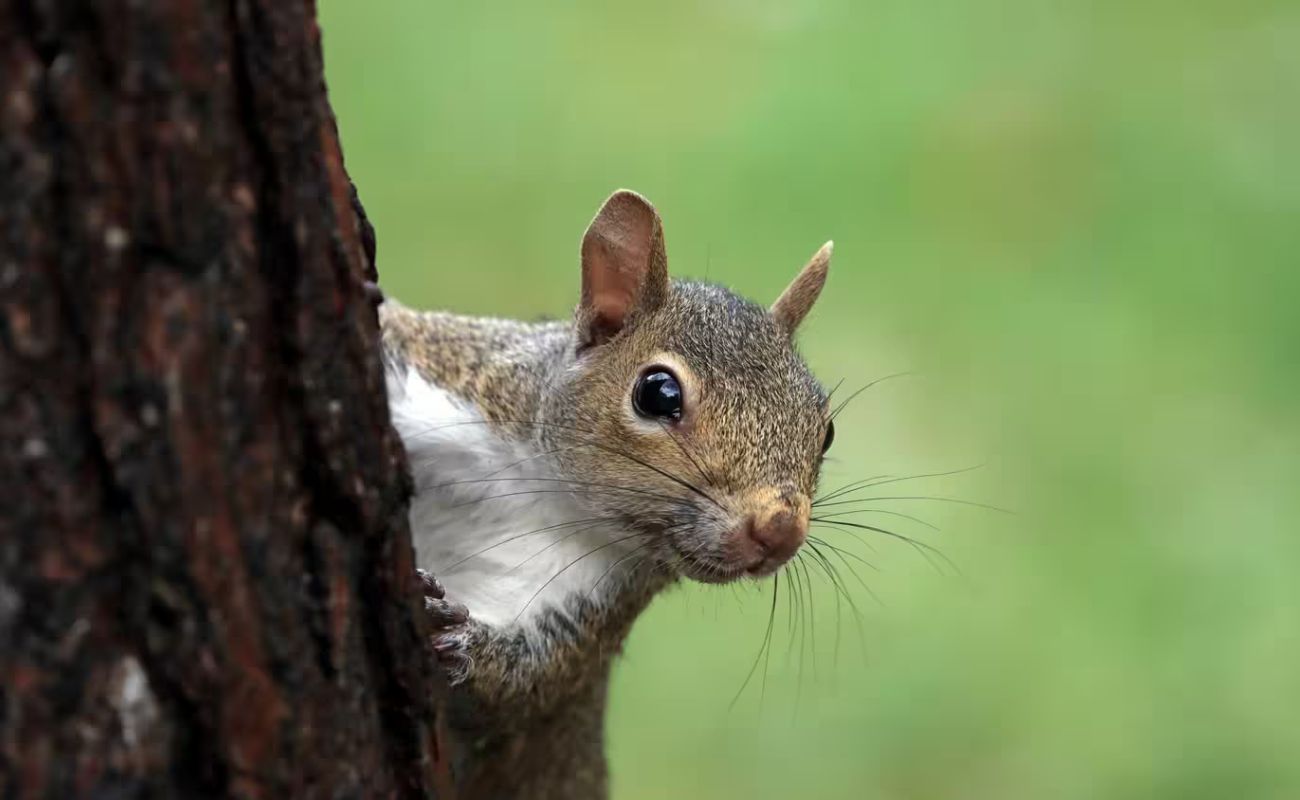
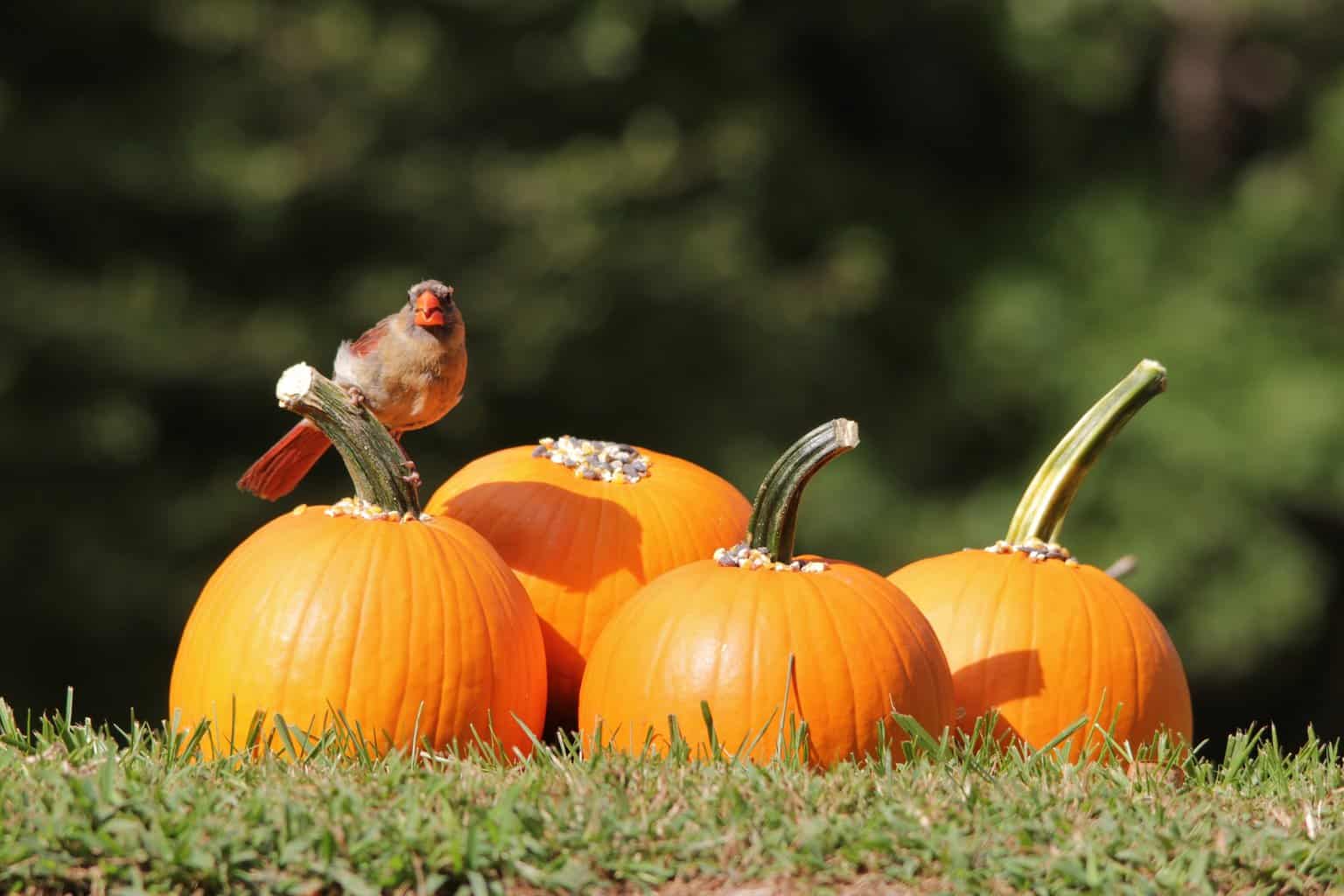
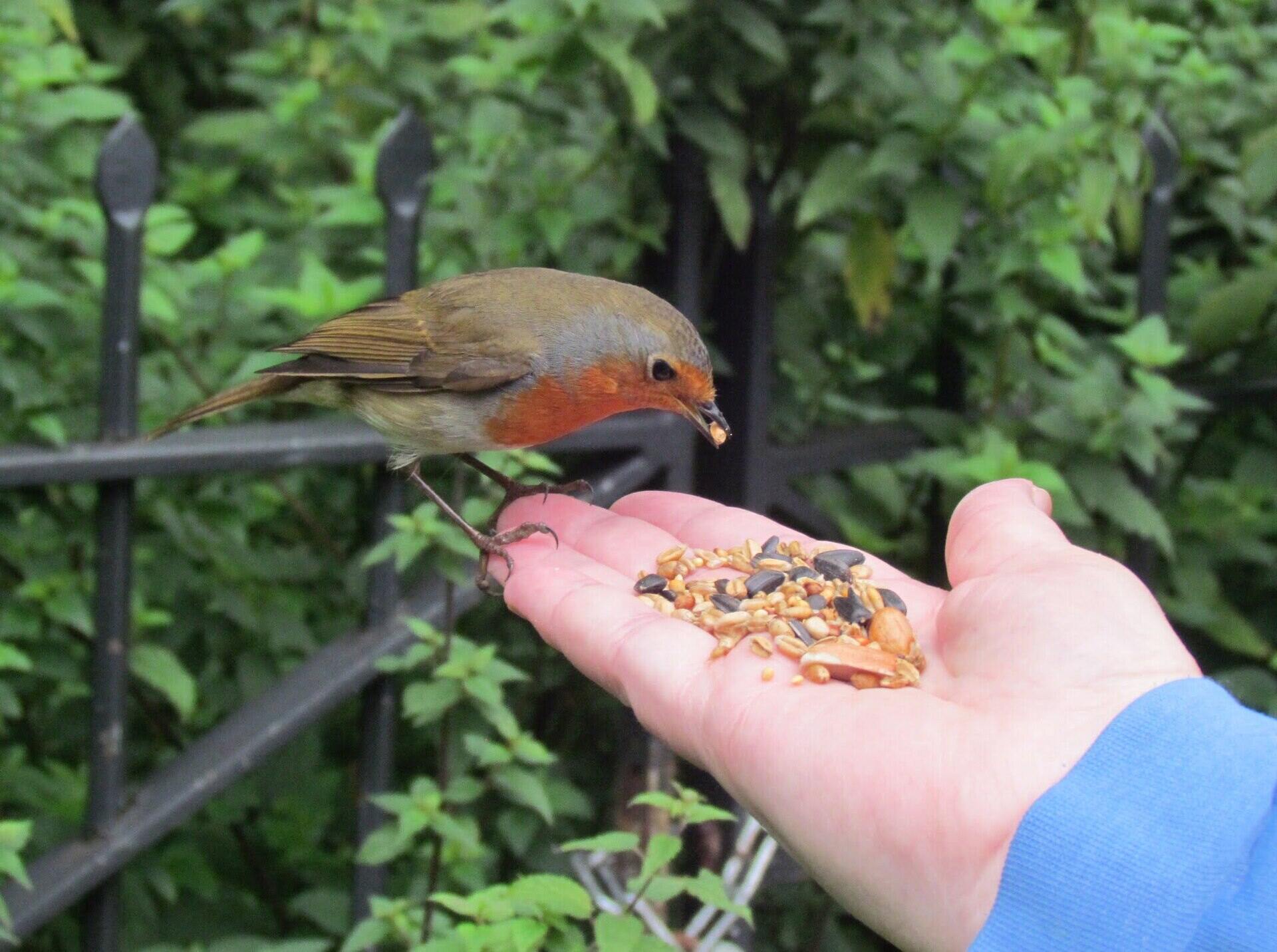
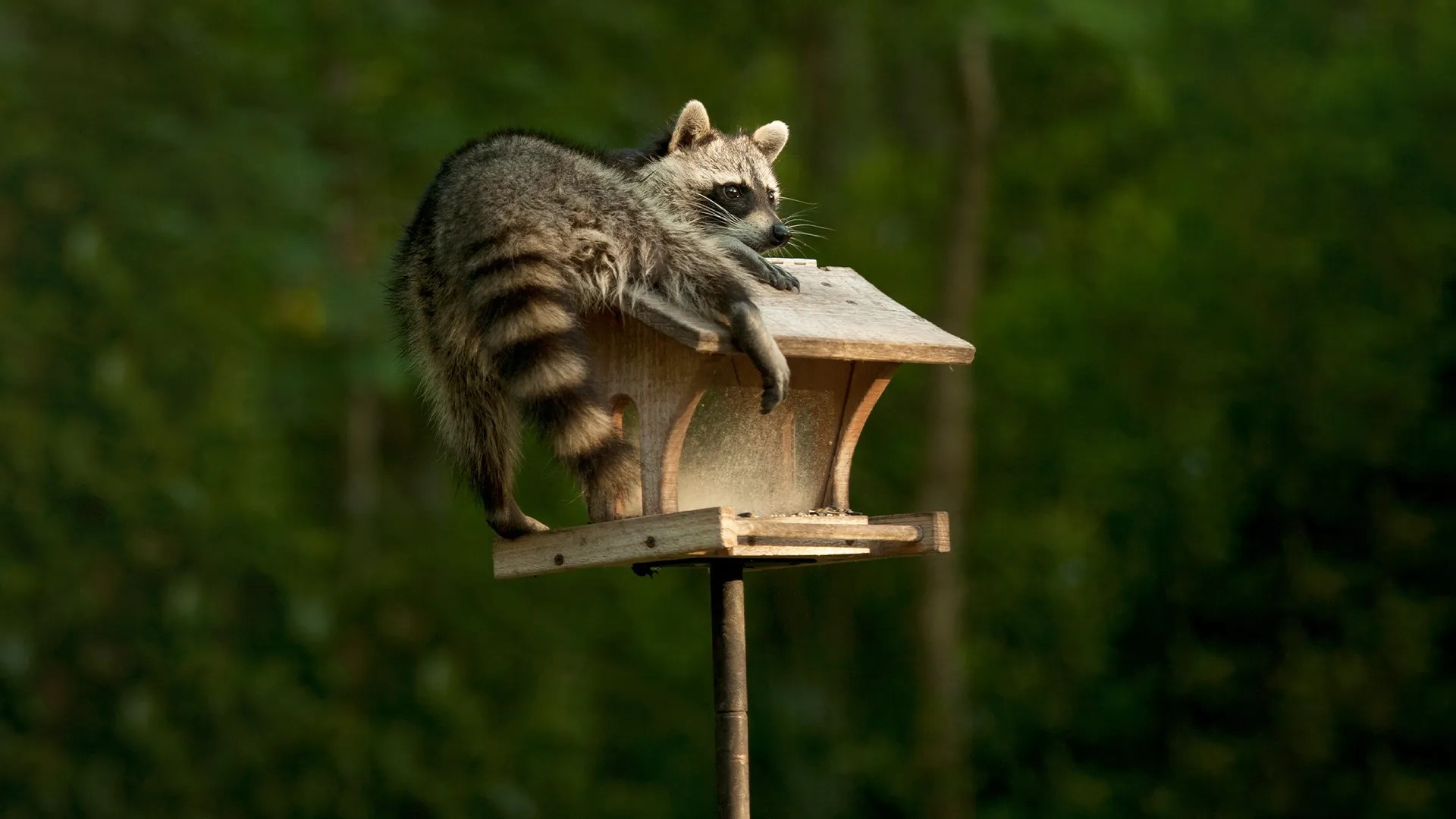
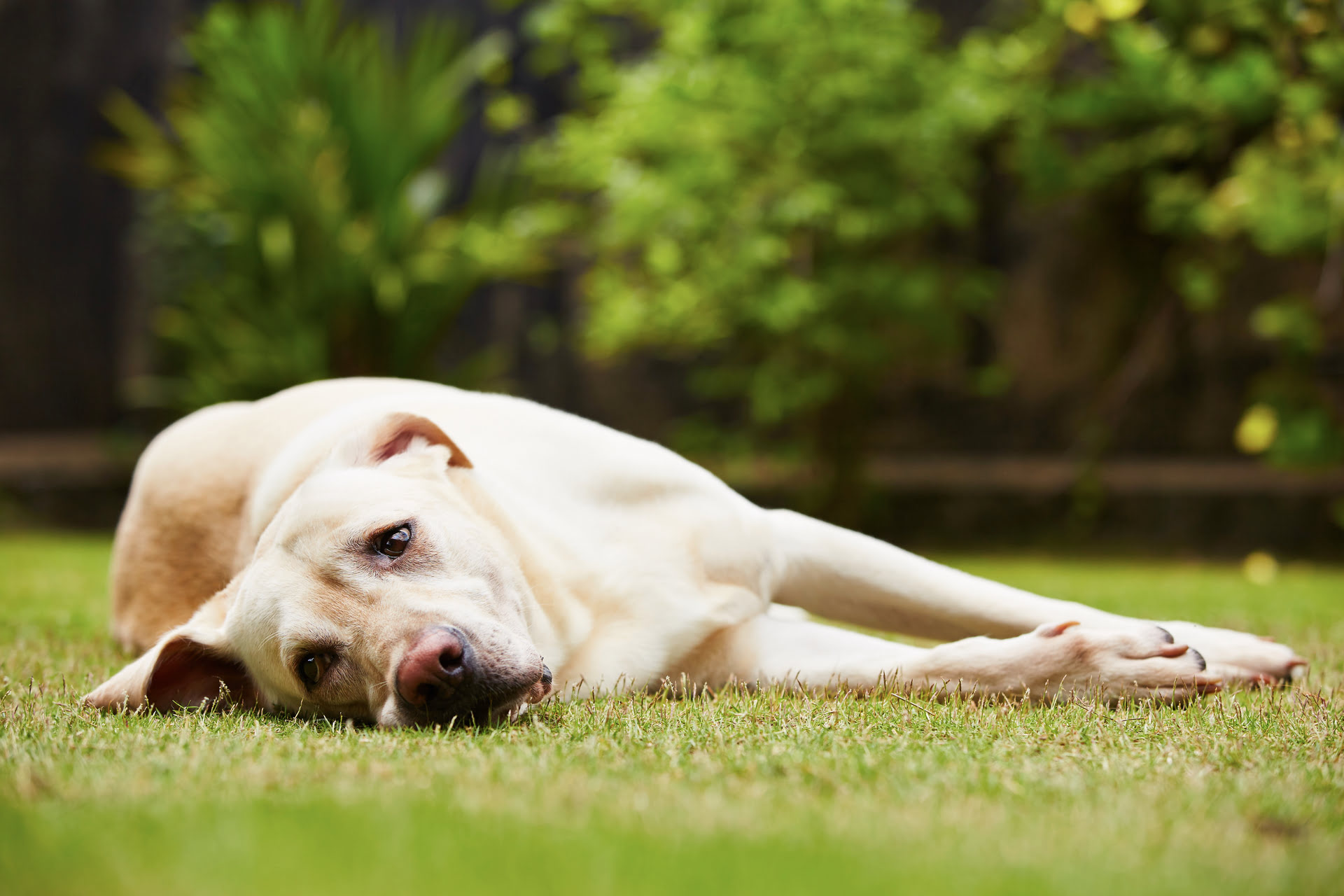
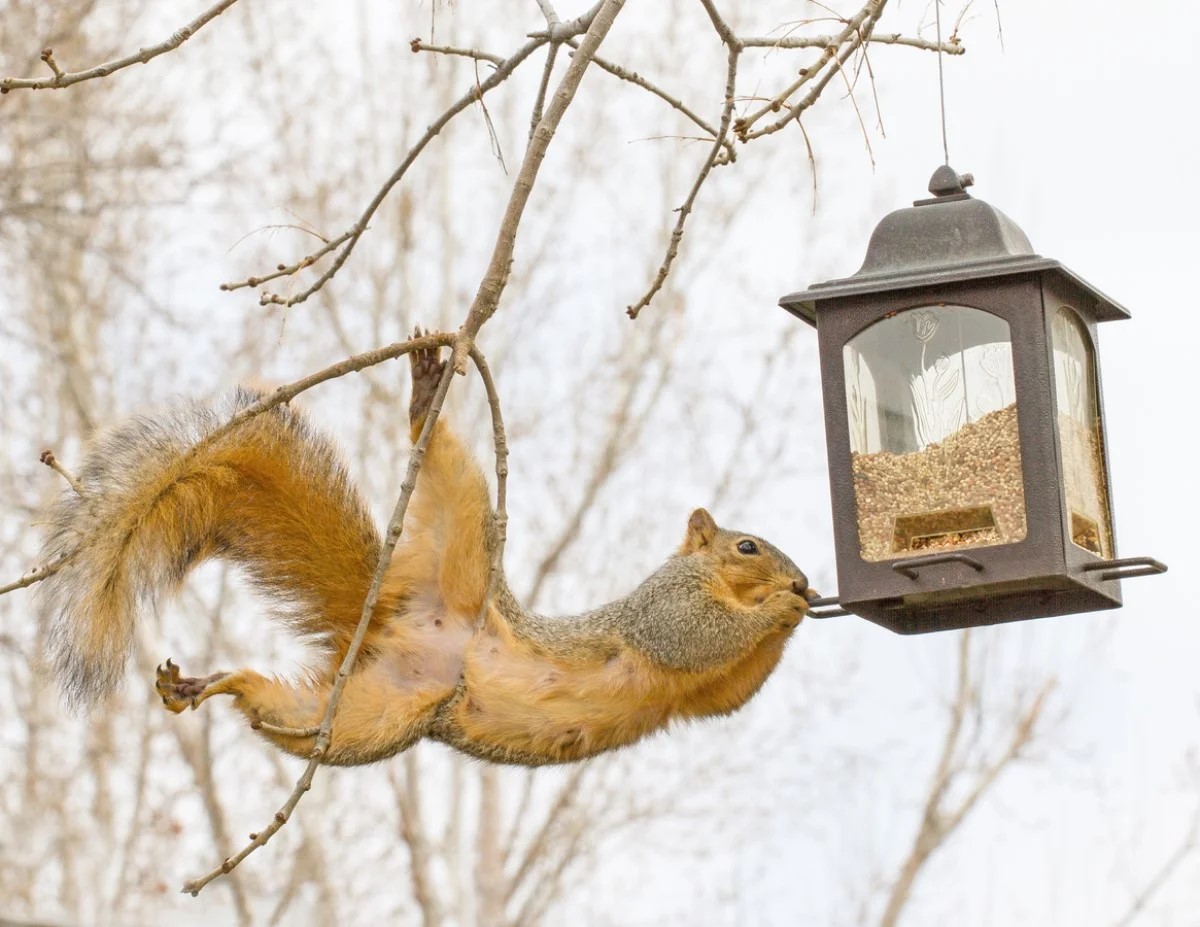
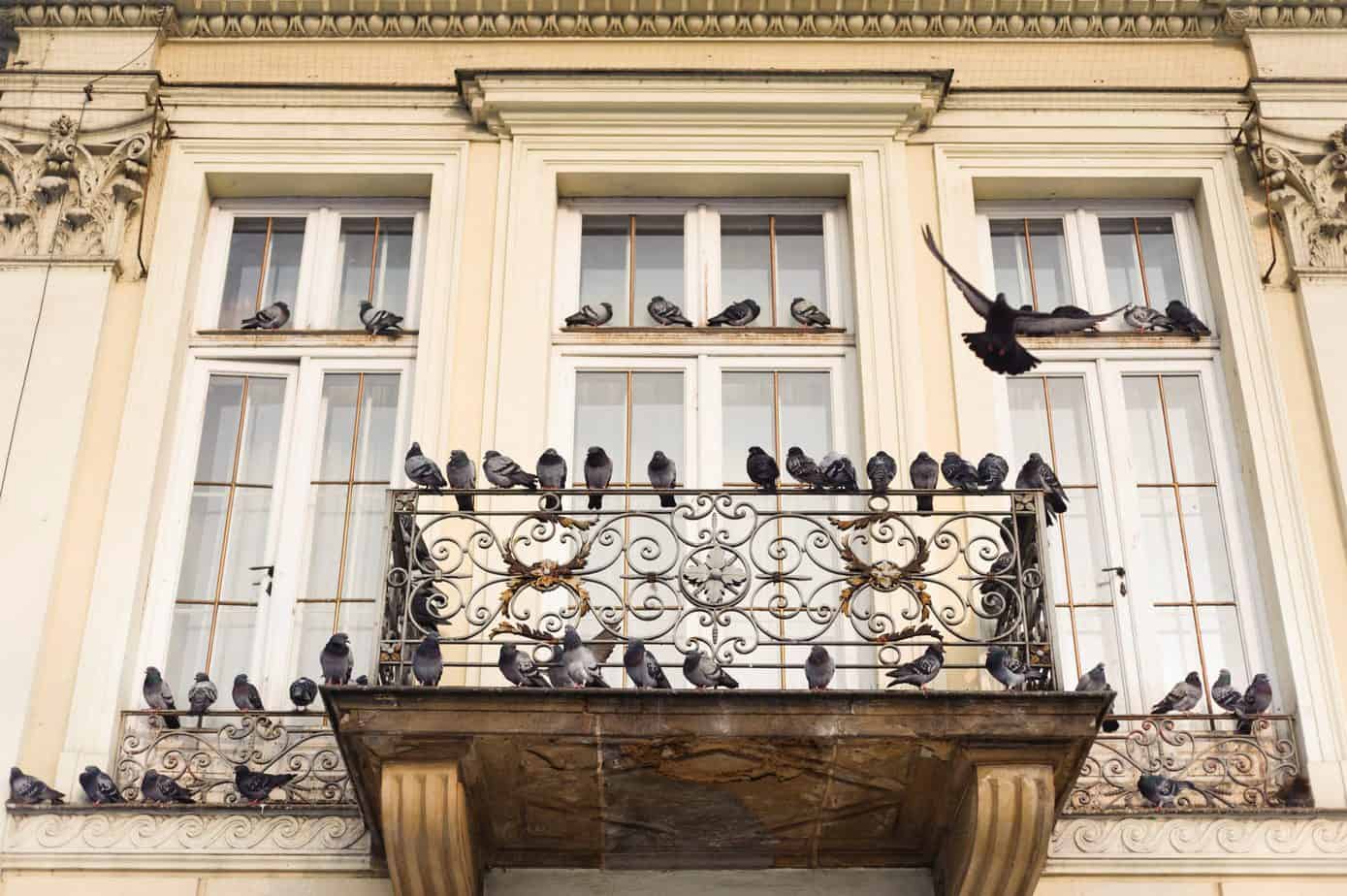
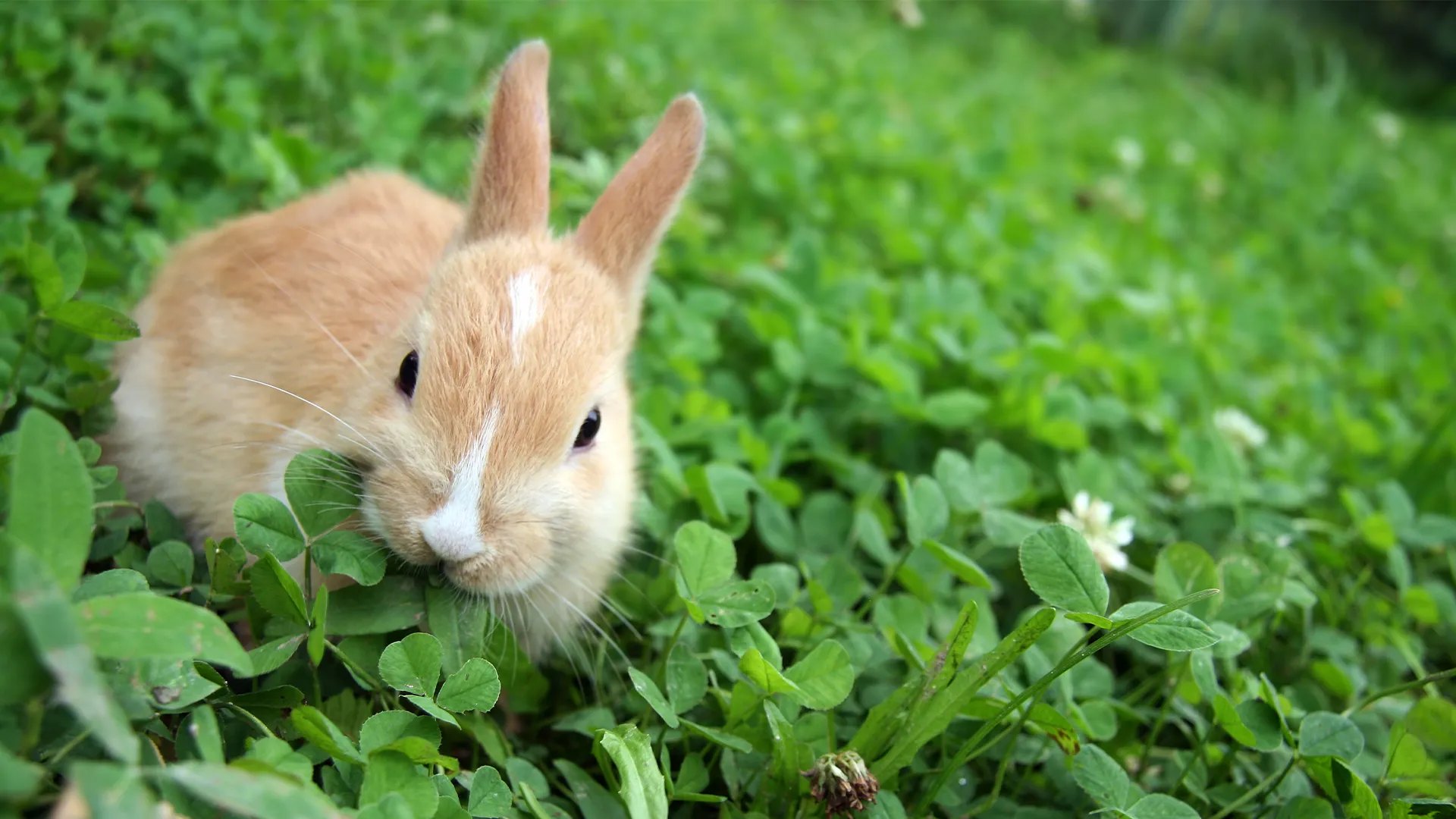

0 thoughts on “How To Stop Squirrels From Eating Bird Seed”